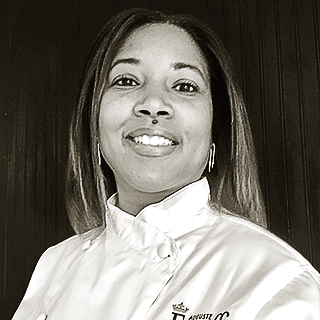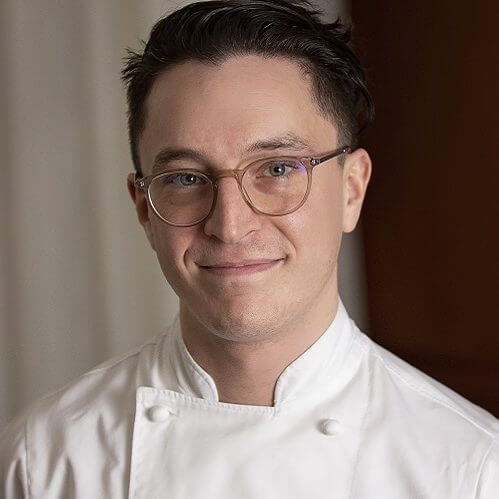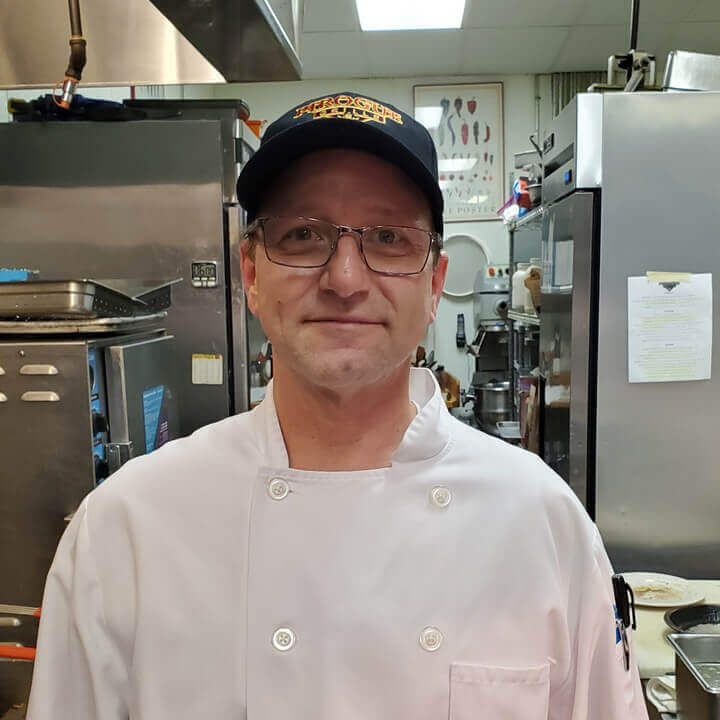Listen to This Article:
Whether you’re a high school student debating your next move, an established adult considering a career change, or an experienced cook looking to advance your skills or start your own business, attending culinary school is a big decision that involves many considerations.
What are the pros? What are the cons? Is a culinary degree the right choice for you?
Culinary school may open up new career opportunities, expose you to mentors and an extensive network of culinarians, and can teach you useful skills and techniques. Plus, if you love to experiment in the kitchen, it can also be a lot of fun!
But it’s not for everyone. Culinary school also requires an investment — of your time, effort, financial resources, and months or years of hard work. If you’re on the fence, this list of culinary school pros and cons may help you decide to take the next steps or pursue your career path another way.
What Exactly Is Culinary School?
Anyone interested in cooking can learn their way around the kitchen by exploring cookbooks, devouring cooking shows, or taking a few local recreation classes. But if you want to make a career out of your kitchen skills, attending culinary school can be one of the most effective ways to do it.
Culinary school is a full curriculum of training in various aspects of cooking and the culinary industry that you may need for a career in food service and hospitality. This can include everything from food prep, knife skills, and cooking techniques to menu planning, how to take inventory, and restaurant management.

Auguste Escoffier School of Culinary Arts is a dedicated culinary school with campuses in Boulder, CO and Austin, TX.
Culinary school can be offered by dedicated culinary schools like Auguste Escoffier School of Culinary Arts, or community college or university programs. Some programs are in-person, while some are online or hybrid.
So why would you choose to attend a culinary school instead of simply learning on the job? It turns out there are several reasons.
When Culinary School Is Worth It
There are many ways earning a culinary degree or diploma can benefit you, from mentorship to career opportunities. Here are a few to consider while you weigh your options.
Culinary School Can Open Up More Career Opportunities
You can certainly have a career in food or a professional kitchen without a culinary school education. But your chances of success can be much higher with a formal culinary school degree.
Hiring managers generally want staff members that need the least amount of time, energy, and financial resources for training on the job. By bringing an established skillset from culinary school – and indicating that you have the wherewithal to work hard and earn a degree – you can be a more desirable job candidate.
Completing culinary school can also help prove your dedication to food as a career, not just a job. In an industry where turnover can be high, chefs may prefer a candidate who is committed to a career in food, rather than one who simply sees the position as a temporary job.
*Information may not reflect every student’s experience. Results and outcomes may be based on several factors, such as geographical region or previous experience.
If you don’t plan to work in a professional kitchen, culinary school still has the potential to improve your career prospects. If you were hiring a food critic, wouldn’t you prefer one who has the culinary knowledge to back up their writing skills?
Omni Hotels & Resorts Executive Chef Josh Hasho says culinary school is a gold star on a resume.
In addition, dedicated culinary schools provide lots of opportunities that may lead to future employment. Your Chef Instructors, guest speakers, curated externship opportunities, alumni network, and co-students are all potential sources for future employment.
Study with a Variety of Chef Instructors in Culinary School
In culinary school, students have the opportunity to learn from and interact with multiple Chef Instructors throughout their programs. These industry professionals include Certified Executive Chefs®, James Beard Award-winners, chefs who have worked in Michelin Star restaurants, and restaurant/foodservice business owners. This means as a student in culinary school, you are exposed to a variety of worldviews, techniques, and culinary styles.
Access to these experienced culinary experts also may provide opportunities for mentorship, as well. Some graduates even build long-term relationships with their Chef Instructors, and personally stay in touch throughout their careers for advice and camaraderie.* From tips on working your way up in a busy kitchen to embarking on the journey of entrepreneurship, teachers are usually eager to share their knowledge.
With their diverse backgrounds, Chef Instructors who have had their own success can provide students with a more well-rounded culinary education than if they simply learned from one executive chef or a mentor on the job.
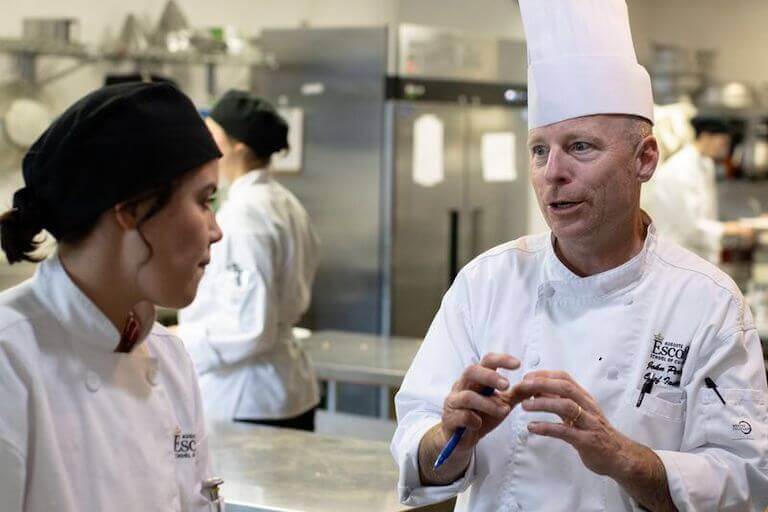
Chef Instructors can become dedicated mentors for their culinary school students.
*Information may not reflect every student’s experience. Results and outcomes may be based on several factors, such as geographical region or previous experience.
Access Networking Opportunities as a Student and Alumnus
In culinary school, your networking opportunities aren’t limited to your Chef Instructors. Your peers are an entire network as well.
You may meet dozens of like-minded students while you study. These fellow students may be at various points in their own culinary careers, from beginners to experienced cooks and chefs looking to improve their skills. These students can serve as future resources for job opportunities, moral support, collaboration, and further education.
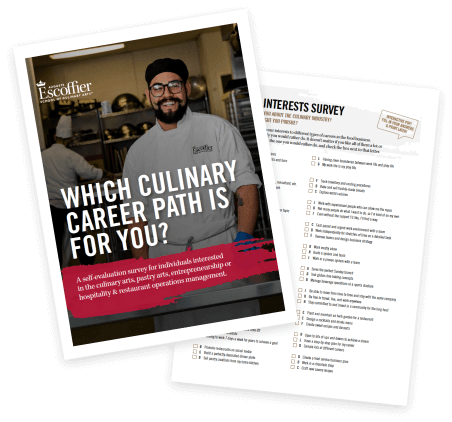
Take the Culinary Career Survey
We’ve compiled a checklist of all of the essential questions into one handy tool: career options, culinary interest surveys, educational opportunities, and more.
As an example of how culinary school students can leverage their network, Escoffier graduates get access to the Escoffier Alumni Association, so they can expand their network to former graduates that may have advanced further in their careers.
All Escoffier students also complete at least one hands-on industry externship during their programs. This real-world experience has the benefit of giving students a position to put on their resumes and provides yet another networking opportunity. Co-workers and supervisors at your externship may know about new job openings, and are a great resource for your first references post culinary school!
A large network can also help future restaurant or food truck owners find qualified candidates when they’re in a position to do the hiring.
*Information may not reflect every student’s experience. Results and outcomes may be based on several factors, such as geographical region or previous experience.
Gain Exposure to Advanced Techniques and Cuisines From Around The World
When working in a professional kitchen, your job is to execute the prep or cooking necessary to serve that predetermined menu to customers. While you may learn those 10 or 20 dishes quickly, your opportunity to learn more varied techniques can be limited.
A good culinary school curriculum is one that builds on itself, scaffolding your knowledge day by day. Since earning a culinary degree or diploma isn’t tied to any specific menu, students get to explore a wider variety of skills, from basic knife skills and sanitation methods to more complex world cuisines and cooking techniques. At Escoffier this is done in 30-84 weeks, depending on the program selected.
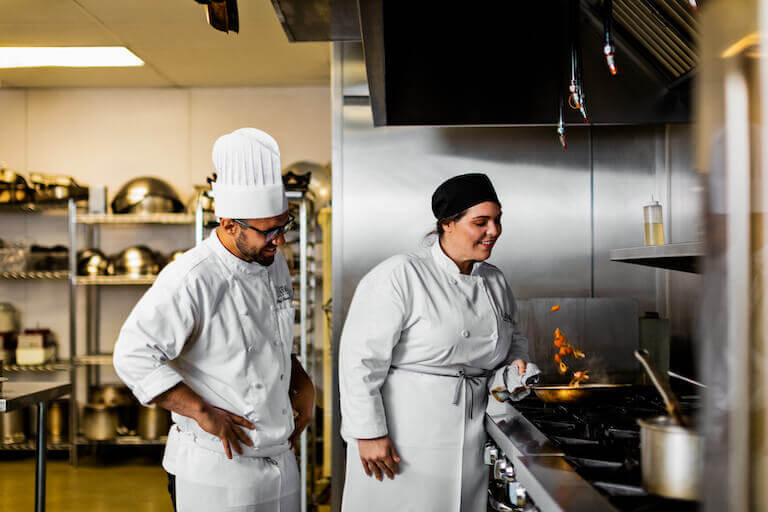
Professional Chef Instructors can provide you with invaluable experience with different styles of cuisine.
Develop Good Lifelong Kitchen Habits
Speed is vital in a professional kitchen. This means that some cooks may learn to take shortcuts to move more quickly.
These shortcuts might include rushing through inventory, estimating weights instead of using a scale, or turning up the temperature on the oven. And the result can be wasted ingredients, sub-standard food, or a sloppy workstation.
In culinary school, students are expected to develop good habits and discipline from the beginning. They must arrive on time, in a clean uniform, ready to work. Organization and cleanliness are paramount in a successful cook, which is why starting with good habits is so important.
*Information may not reflect every student’s experience. Results and outcomes may be based on several factors, such as geographical region or previous experience.
Even for students who have already spent several years working in professional kitchens, culinary school can help them refresh their habits, get back to the fundamentals, and become more efficient and effective overall.
Earning a Credential Can Open Doors
Just like in other fields, having a credential, whether that is a diploma or degree, provides proof to employers that you may have a certain baseline level of skills. Employers know that when they see a culinary degree on your resume that you are dedicated to a career in food service, that you consistently showed up on time, and that you have specific skills.
Even if you won’t be cooking, depending on your specialty in culinary school, a diploma can show that you understand not only kitchen skills, but why and when you need to use them. This could provide you with a pathway to a career in hospitality and hotel management, food-related media like TV, as a food writer, or in health and nutrition fields.
The Downsides of Culinary School
While there aren’t too many “cons” to attending culinary school, there may be some challenges. And depending on where you are in your career, it may not be the right time. Here are some challenges you should consider before applying.
Culinary School Requires a Time Commitment
Education takes time. Getting your education may delay your ability to make big changes, like getting a new job, taking a vacation, or starting a new business.
Still, unlike a 4-year degree program, at culinary schools like Escoffier, students can earn their culinary diploma in just 30 weeks, and their culinary degree in as little as 60 weeks. If you don’t go to culinary school, those 30 or 60 weeks will still fly by, but at the end, instead of having a culinary degree or diploma in hand, you might still be operating with the same set of culinary skills you had at the beginning.
Culinary School Requires a Financial Investment
*Information may not reflect every student’s experience. Results and outcomes may be based on several factors, such as geographical region or previous experience.
Except for the rare case where a student finds ample scholarships that cover 100% of the costs, culinary school is not free. There is still a financial investment required to attend.
Fortunately, financial aid is available to Escoffier students who apply and qualify to help fund their in-person or online culinary school programs.
Culinary school students may also see a financial return on their education investment. Some employers might be willing to pay more for culinary school graduates, so students who choose to attend culinary school may benefit from that formal training soon after they graduate.
It Might Be a Challenge to Juggle Work, Family, and School Responsibilities
Culinary school students often have to work while they’re in school to continue paying the bills. And some are later-in-life students, who also have families to look after. This can make attending school for hours per day a bit of a challenge.
Online culinary programs, like Escoffier’s many online options, can help meet this unique set of circumstances. Students can complete these programs on their schedule, as long as they meet the required course deadlines. Students can watch instructional videos and practice their skills at night after the kids are asleep, or even early in the morning before work.
Escoffier student Katie Sualog does just that – balances family life, career, and education. In fact, she started her degree program online before transferring to the Escoffier Austin campus. A mother of two, she also runs a home-based bakery while she’s earning her degree.
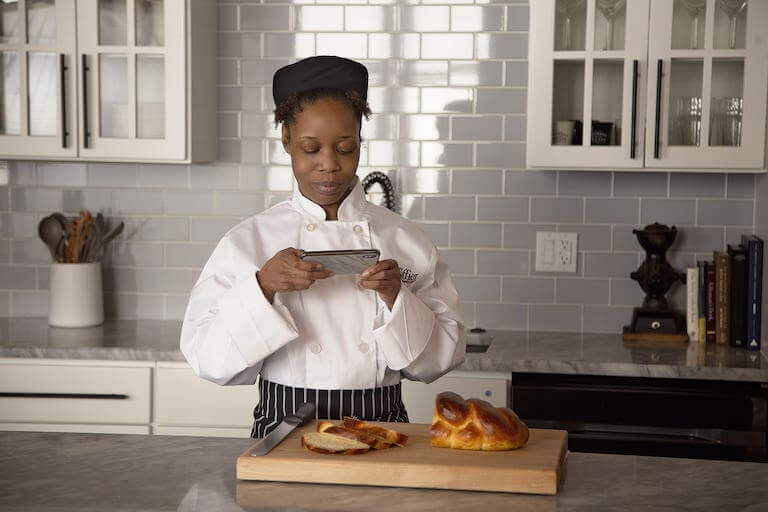
Culinary school may require juggling work and family life with your education.
Plus, each Escoffier student is assigned a Success Coach to help them if they run into trouble or are struggling with any part of their programs. These motivators and problem solvers are in your corner to help you right through to graduation day.
Culinary School is Not Always Necessary for Success
Despite all the benefits of culinary school, it’s not required. It’s not essential to get where you’d like to go with your career. If you already work in a great kitchen with a great mentor, and you’re happy with your job, culinary school may not be necessary.
Or, if you don’t have a huge vision for your career and simply want to keep doing what you’re doing, then investing all the time and money required may be overkill. To help yourself decide, it’s important to ask yourself what your goals are, and choose the option that best supports what you want.
So, Who Is Culinary School Right For?
Put it all together… and what does it mean? Culinary school may be the right path for anyone who wants a deeper understanding of cooking and food. It’s also an excellent option for people who dream of a culinary career — which could mean working in a professional kitchen, opening a restaurant or food truck, or working in an alternative career as a food photographer, food writer, chef consultant, recipe developer, and more. This is especially true if you want to set yourself up for success with the professional network and full palette of cooking skills and techniques that culinary school offers.
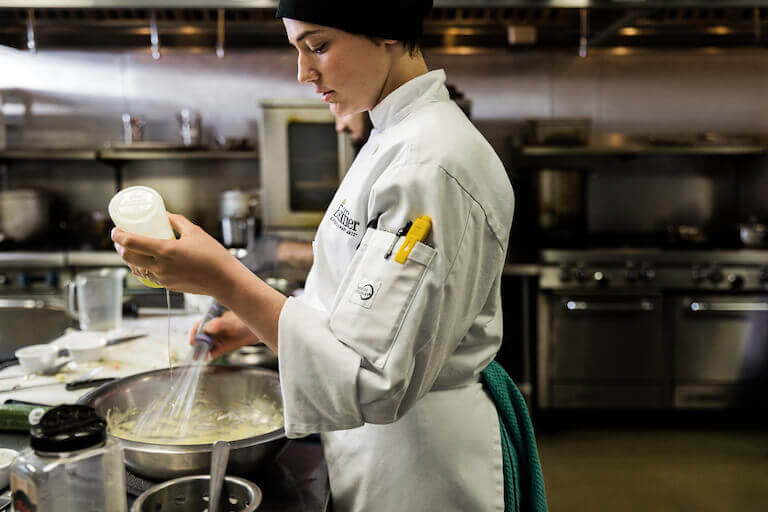
Culinary school can help you take your cooking skills to a professional level.
It’s also for people who see education as an investment in themselves and in their futures, and who understand that there is great potential to receive both financial and personal returns on that investment.
If that sounds like you, culinary school just might be the right path for you. Reach out to us today to learn more about how you can start!
TO GET A LITTLE MORE INSIGHT INTO THE VALUE OF CULINARY EDUCATION, TRY THESE ARTICLES NEXT:
- How Much Does Culinary School Cost and How Can You Pay For It?
- College Not For You? Try Culinary School
- Why Older Students Should Consider Culinary School
This article was originally published on May 4, 2021, and has since been updated.
*Information may not reflect every student’s experience. Results and outcomes may be based on several factors, such as geographical region or previous experience.

